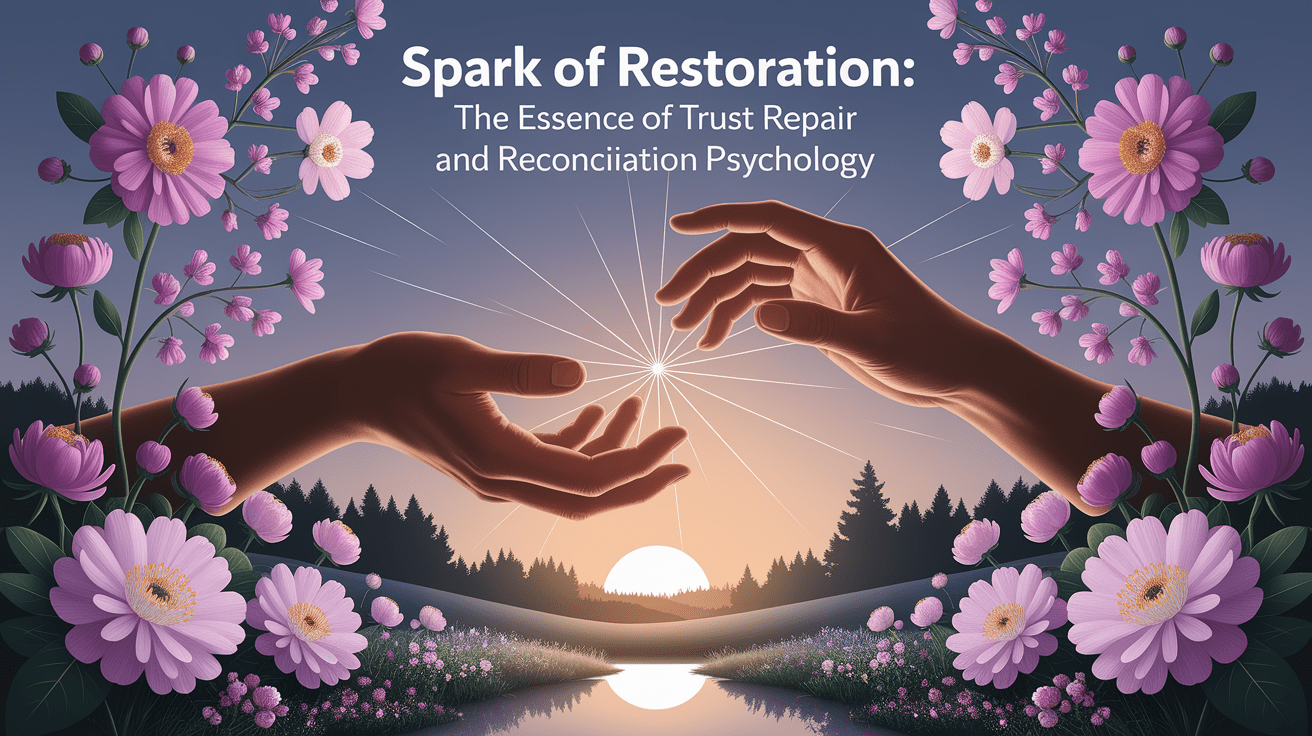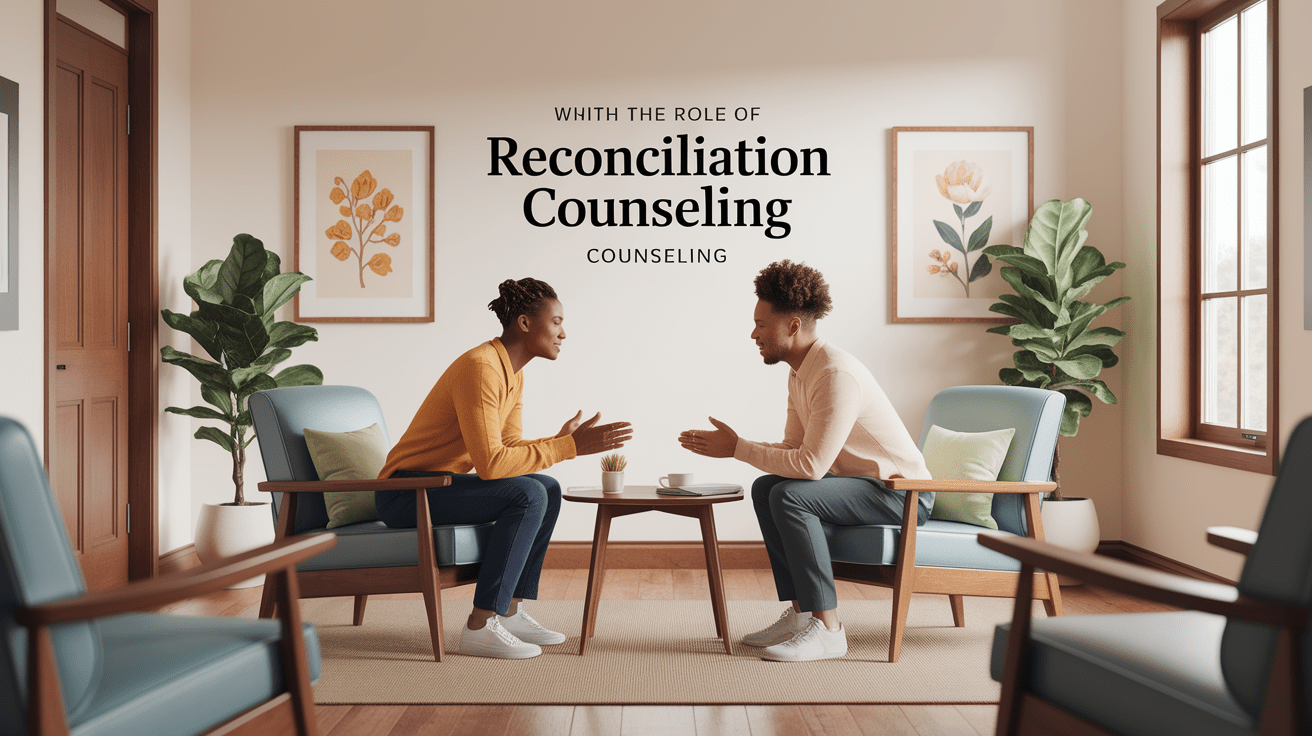Trust Repair and Reconciliation Psychology: A Practical Guide
Spark of Restoration: The Essence of Trust Repair and Reconciliation Psychology
Trust repair and reconciliation are vital processes for restoring damaged relationships after conflict, betrayal, or misunderstandings. In psychological terms, trust repair involves addressing breaches of interpersonal trust through both cognitive reframing and behavioral demonstration. This may include acknowledgment of wrongdoing, transparent dialogue, and sustained actions to rebuild perceived reliability.

Reconciliation psychology is a broader systemic process focused on relationship restoration. It incorporates emotional healing, constructive conflict resolution, and fostering forgiveness—a deliberate decision to let go of resentment while working toward shared commitment. While trust repair focuses directly on interpersonal trust, reconciliation addresses the relational ecosystem, often requiring both parties to shift perspectives and behaviors.
Core Principles of Reliable Restoration
Effective trust restoration depends on foundational principles derived from established psychological theories such as attachment theory, restorative justice, and interpersonal reconciliation models. Key principles include:

- Accountability: Accepting responsibility for actions and their impact on trust.
- Consistency: Demonstrating reliability through repeated, trustworthy behavior over time.
- Transparency: Being open in communication, decisions, and intentions.
- Empathy: Showing genuine understanding of the betrayed party’s feelings and experiences.
- Mutual Commitment: Both parties need to engage actively in the process to sustain trust rebuilding.
Psychological research highlights that without these principles, the trust-repair process is more likely to fail, as emotional trust barriers remain unaddressed.
Navigating the Psychological Pathway to Reconciliation
The emotional reconciliation process is often complex, requiring multiple stages. Drawing from betrayal reconciliation research, these stages can include:

- Recognition: Acknowledging the harm done and its effect on interpersonal trust.
- Remorse: Sincerely expressing regret and empathy for the hurt caused.
- Repair: Implementing behavioral changes and trust-building exercises.
- Restoration: Gradually returning to a balanced, secure relationship dynamic.
In some contexts—such as marital therapy or post-infidelity recovery—professional therapeutic intervention helps individuals move through these stages effectively. Psychological reconciliation often benefits from understanding the difference between forgiveness and reconciliation, as noted in forgiveness vs reconciliation frameworks.
Actionable Strategies for Rebuilding Trust
Trust rebuilding after a betrayal, whether in personal or professional relationships, demands intentional and evidence-based approaches. Drawing from trust building strategies, individuals can implement the following:

- Open Communication: Maintain honest dialog with no hidden agendas.
- Consistent Follow-Through: Keep promises and commitments without exception.
- Active Listening: Validate the other person’s emotions by listening attentively.
- Risk-Taking in Vulnerability: Share thoughts and feelings to rebuild emotional connection.
- Empathy Practices: Apply perspective-taking exercises to enhance relational understanding.
For couples facing significant psychological trust issues, applying relationship repair strategies within structured therapy can accelerate progress.
The Role of Reconciliation Counseling
Reconciliation counseling offers a structured and supported environment for addressing betrayal trauma, emotional healing, and trust restoration. According to marital reconciliation counseling research, this therapeutic approach helps couples resolve deep-rooted emotional conflicts, clarify expectations, and work toward renewed connection.

Counselors use trust repair techniques tailored to the couple’s unique psychological barriers, incorporating evidence-based interventions such as guided empathy exercises, attachment-focused therapy, and joint problem-solving sessions. Those seeking professional help can locate appropriate specialists through platforms like Psychology Today, which lists therapists proficient in relationship counseling.
Sustaining Security: Moving Forward with Confidence and Care
Once trust is rebuilt, sustaining it requires ongoing attention to relationship health. Long-term success depends on integrating trust restoration techniques into daily interactions, committing to transparent communication, and fostering emotional resilience. Sustainable security also involves anticipating potential trust breaches and addressing them proactively before they escalate.
Couples and individuals who continue applying reconciliation psychology principles are better equipped to prevent breakdowns and maintain strong relational bonds. Ultimately, the journey of trust repair and reconciliation is not merely about mending the past—it is about creating a resilient and mutually supportive future.







